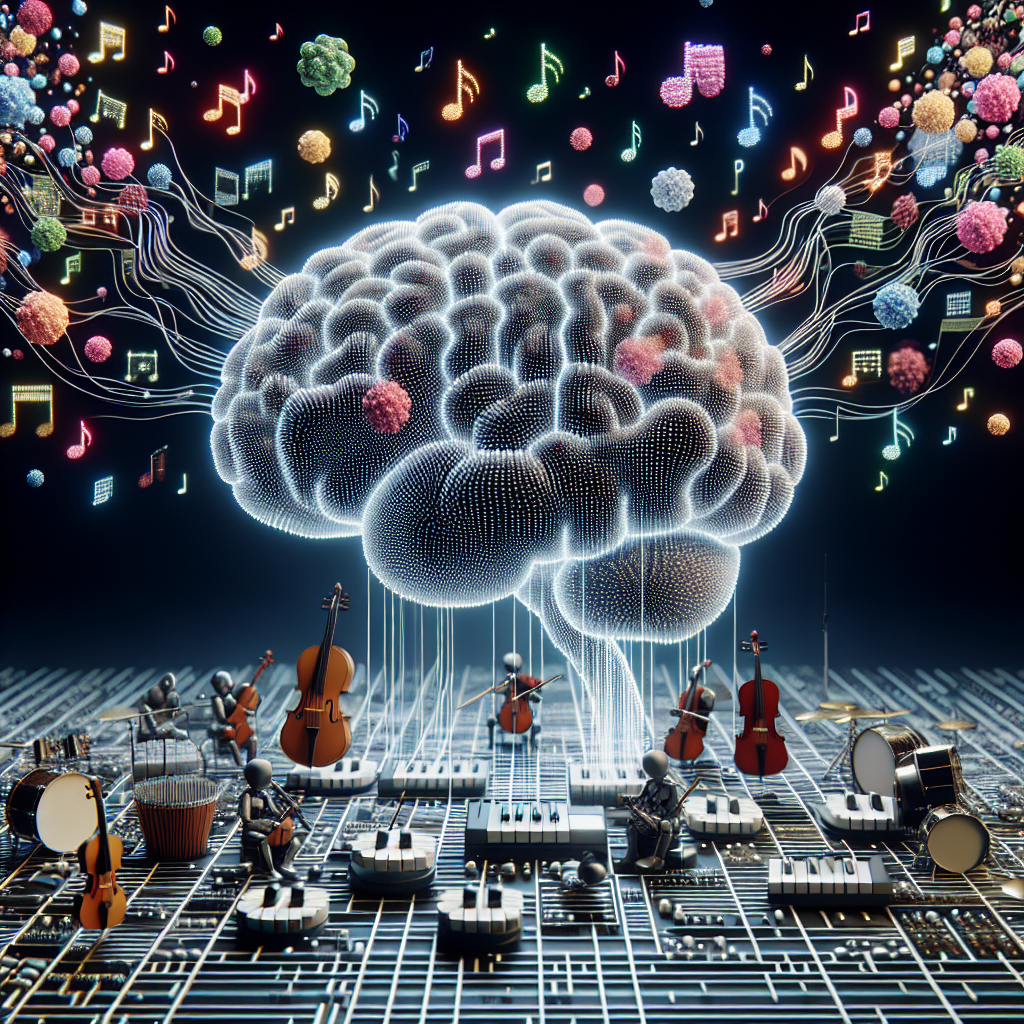Artificial Intelligence (AI) has been revolutionizing various industries, and the music industry is no exception. AI technology has been employed in creating music, enhancing music production, analyzing music data, and even composing entire pieces. With the help of AI, musicians, producers, and music enthusiasts are pushing the boundaries of creativity and innovation in the music world.
AI and Music Production
One of the most significant impacts of AI in the music industry is in music production. AI tools and software have made it easier for musicians and producers to create, mix, and master music. For example, AI-powered plugins can analyze audio tracks and suggest improvements in real-time, saving time and effort in the production process. AI algorithms can also be used to generate music loops, drum patterns, and chord progressions, providing inspiration for artists.
AI has also been used in creating virtual instruments and synthesizers that can mimic the sounds of traditional instruments with incredible accuracy. This allows musicians to experiment with new sounds and textures, expanding the possibilities of music creation.
AI and Music Composition
AI has been used to compose music, sometimes even indistinguishable from human-composed pieces. By analyzing vast amounts of musical data, AI algorithms can generate melodies, harmonies, and rhythms that sound natural and engaging. Some AI programs can even mimic the style of famous composers, creating new compositions in their signature style.
One of the most famous examples of AI-generated music is “Daddy’s Car” by Taryn Southern, which was entirely composed by AI software. The song received critical acclaim and showcased the potential of AI in music composition.
AI and Music Analysis
AI technology has also been used to analyze music data, providing valuable insights to musicians, producers, and music listeners. AI algorithms can analyze audio tracks to identify key elements such as tempo, key signature, and mood. This information can help artists make informed decisions about their music production and marketing strategies.
AI can also analyze music consumption data to predict trends and recommend personalized music recommendations to listeners. Streaming platforms like Spotify and Apple Music use AI algorithms to curate playlists and recommend music based on users’ listening habits and preferences.
FAQs:
Q: Can AI replace human musicians?
A: While AI technology has made significant advancements in music creation, it is unlikely to replace human musicians entirely. AI can assist musicians in the creative process and enhance their capabilities, but human creativity, emotion, and interpretation are still essential aspects of music that AI cannot replicate.
Q: Is AI-generated music considered “real” music?
A: The definition of “real” music is subjective and highly debated. While some purists may argue that AI-generated music lacks the emotional depth and intentionality of human-created music, others see it as a new form of creativity and innovation. Ultimately, the value of music lies in its ability to evoke emotions and connect with listeners, regardless of its origin.
Q: How can musicians benefit from AI technology?
A: Musicians can benefit from AI technology in various ways, including music production, composition, analysis, and marketing. AI tools can help musicians streamline their production process, experiment with new sounds, analyze music data, and reach a wider audience. By embracing AI technology, musicians can enhance their creativity, efficiency, and innovation in the music industry.
In conclusion, AI technology is pushing the boundaries of creativity and innovation in the music industry. From music production to composition to analysis, AI is revolutionizing how music is created, consumed, and experienced. While the role of AI in music continues to evolve, one thing is clear: AI is a powerful tool that has the potential to reshape the music landscape for years to come.

